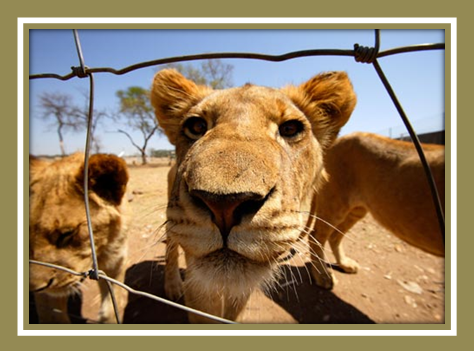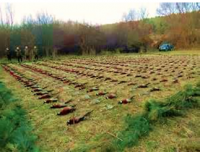News
Latest Lion Aid News
Captive bred lions in South Africa are neither fish nor fowl
Friday 2nd May 2014
|
What am I?
George gets it a bit wrong in places – pheasants are classed as “game birds” by the Game Act of 1831 and the Wildlife and Countryside Act of 1981, and therefore their seamless metamorphosis between wild animals and livestock is accomplished because of their “special” status. Game birds, like pheasant, partridge, grouse, snipe, capercaille and woodcock are legally not domestic birds or wild birds. Why? Well because the aristocracy and other rich and influential people got the Acts passed so they could hunt them, that’s why. It makes as much sense as all wild swans belonging to the Queen via the Act of Swans of 1482 (killing a swan or stealing a swan egg is these days punishable by a fine of £5,000 or six months in jail – until 1998 it was classed as an act of treason).
But now let’s look at the parallels between pheasants and captive raised lions in South Africa. Ever since the Court of Appeals ruling in favour of the captive lion breeders, the Department of Environmental Affairs (that oversees wildlife) was told they have no jurisdiction. The breeders said the lions contribute nothing to the conservation of the species, and therefore should not fall under the laws applicable to breeding wild animals. That was quite convenient. But neither do captive lions fall under the jurisdiction of the Department of Agriculture, as they are not considered livestock. If they were classified as livestock or domestic animals all kinds of problems would arise because it would be legally questionable to bring in trophy hunters to shoot them. In short, captive bred lions are neither fish nor fowl under South African laws. Nobody has challenged this absence of status. Wild lions are classified as “Vulnerable species” under the National Environmental Management and Biodiversity Act – Threatened or Protected Species regulations (see Notice 389 of the Department of Environmental Affairs of 16 April 2013). This means there are regulations in place about their breeding, handling, transport, capture, scientific activities – all of which need permits. Captive animal breeders also need permits, but there are no established norms and standards of housing captive predators or the uses they can be put to. If captive lions were classified as wildlife, the breeders would have to demonstrate that rearing them would be of genuine conservation benefit. Without a defined status, it means breeders are able to take lion cubs away from their mothers at a very early age, have them raised by unqualified paying volunteers, rent the cubs out for weddings and parties, have them petted and walked by streams of tourists, and eventually transport them to a fenced field where they can be shot by recreational “hunters”. There are even means by which a captive raised lion can be reclassified as “wild” – by releasing the animal for a period as short as 96 hours in some South African Provinces. This process, analogous to the transformation of tame pheasants to wild birds, is important to the hunters as with their remaining “scruples” they don’t want to be perceived as having shot a docile animal. It also makes a difference to them as they can, like with the Safari Club International, have their trophies entered into Record Books and display a special plaque with their trophy. It is basically a means of trophy “laundering”. Captive lion breeders are greatly enjoying this lack of a defined status of their animals. But it would seem a ripe area for an overdue legal challenge. Picture credits: sportquestholidays.com and www.theguardian.com If you have not already signed up to our mailing list, you can add your name here and keep up to date with our ongoing work and, most importantly, DONATE to support our work to conserve the remaining fragile lion populations. Thank you Categories: Events/Fundraising, Domesticating Animals |
Posted by Chris Macsween at 13:26
No comments have been posted yet.
Add a new comment
Existing user
New user sign up




 It is estimated that about 1 million pheasants (that are non-indigenous to the UK) are reared each year, not all of them for the hunt – they are also sold as meat. However, the pheasant “shoots” that people with excess cash engage in are more lucrative – it costs about £25 to shoot a pheasant, and on the big hunts with many guns about 3,000 can be shot in a day. Those hunts employ many people including “beaters” to chase the pheasants into the guns – not an easy task as the pheasants don’t want to fly (it is not “sporting” to shoot a pheasant on the ground) as they have been raised in cages.
It is estimated that about 1 million pheasants (that are non-indigenous to the UK) are reared each year, not all of them for the hunt – they are also sold as meat. However, the pheasant “shoots” that people with excess cash engage in are more lucrative – it costs about £25 to shoot a pheasant, and on the big hunts with many guns about 3,000 can be shot in a day. Those hunts employ many people including “beaters” to chase the pheasants into the guns – not an easy task as the pheasants don’t want to fly (it is not “sporting” to shoot a pheasant on the ground) as they have been raised in cages.